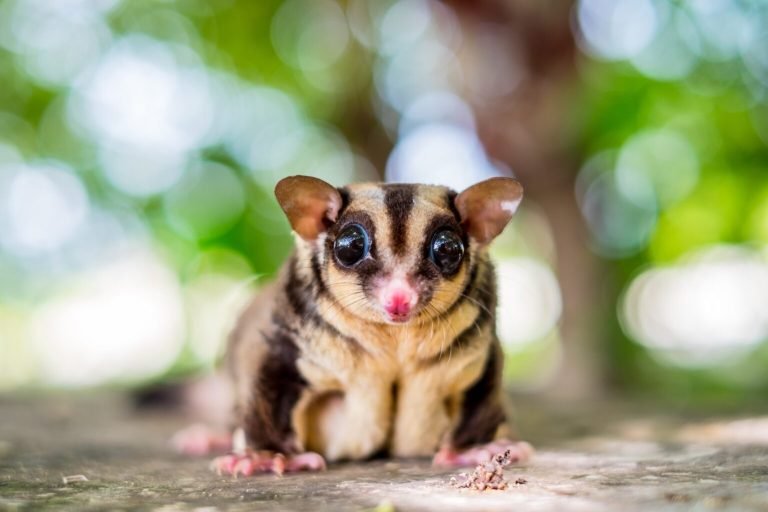How Much Does A Sugar Glider Weigh
How Much Does a Sugar Glider Weigh?
When it comes to considering a sugar glider as a pet, one of the questions that often comes to mind is, “How much does a sugar glider weigh?” It’s important to know the average weight of this small marsupial so that you can properly care for it and ensure its overall well-being. In this article, we will explore the weight range of sugar gliders, what factors can affect their weight, and how to maintain a healthy weight for your furry friend.
Understanding the Weight Range of Sugar Gliders
Sugar gliders are small animals native to Australia, New Guinea, and Indonesia. On average, these adorable creatures weigh between 4 to 6 ounces (115 to 170 grams). However, it’s essential to note that there can be slight variations in weight depending on the gender and individual characteristics of each sugar glider.
Male sugar gliders tend to be slightly larger and heavier than females, with an average weight range of 5 to 7 ounces (140 to 200 grams). Females, on the other hand, typically weigh between 3 to 5 ounces (85 to 140 grams). These weight ranges are considered to be healthy and normal for adult sugar gliders.

Factors Affecting Sugar Glider Weight
Various factors can influence the weight of a sugar glider. Let’s take a closer look at some of these factors:
1. Age: Like any living creature, sugar gliders go through different stages of life that can impact their weight. Young sugar gliders may weigh less than adult gliders as they are still growing and developing. As they reach maturity, their weight typically stabilizes within the average range mentioned earlier.
2. Diet: The diet of a sugar glider is crucial for maintaining a healthy weight. In the wild, sugar gliders primarily feed on a diet that consists of nectar, sap, insects, and fruits. When kept as pets, it’s essential to replicate this natural diet as closely as possible. Providing a balanced diet that includes specially formulated sugar glider pellets, fresh fruits, vegetables, and occasional treats is key to keeping your pet at a healthy weight.
3. Exercise: Like any other creature, sugar gliders need regular exercise to stay fit and maintain an appropriate weight. In their natural habitat, they spend a significant amount of time gliding and climbing. As a pet owner, providing an environment with ample opportunities for physical activity, such as a large cage with plenty of toys and branches to climb on, is essential for keeping your sugar glider’s weight in check.
Maintaining a Healthy Weight for Your Sugar Glider
To ensure that your sugar glider is at a healthy weight, it’s crucial to monitor its weight regularly. Here are some tips for maintaining a healthy weight for your furry friend:
1. Weigh your sugar glider periodically using a small kitchen scale or a pet scale. This will help you keep track of any significant weight fluctuations that may indicate a health issue.
2. Provide a balanced diet that includes sugar glider pellets, fresh fruits, and vegetables. Avoid feeding them high-calorie or sugary foods, as this can lead to weight gain.
3. Create an enriched environment for your sugar glider with plenty of opportunities for exercise. Include climbing structures, branches, and toys to keep them active and engaged.
By following these guidelines and monitoring your sugar glider’s weight, you can ensure that your pet remains at a healthy weight and leads a happy and fulfilling life.
Frequently Asked Questions
Q: Can sugar gliders become overweight?
Yes, sugar gliders can become overweight if they are overfed or given an imbalanced diet. It’s important to provide them with a proper diet and monitor their weight to prevent obesity.
Q: How often should I weigh my sugar glider?
You should weigh your sugar glider at least once a month to keep track of their weight. However, if you notice any significant changes in their behavior or suspect a health issue, it’s best to consult a veterinarian.
Q: What should I do if my sugar glider is underweight?
If you notice that your sugar glider is underweight, it’s essential to consult a veterinarian as soon as possible. They can assess your glider’s overall health and provide recommendations on how to improve their weight and nutrition.
Final Thoughts
Taking care of a sugar glider includes monitoring and maintaining their weight to ensure their overall well-being. By understanding the typical weight range of sugar gliders, the factors that can affect their weight, and implementing a proper diet and exercise routine, you can help your pet stay healthy and happy. Remember to weigh your sugar glider regularly, provide a balanced diet, and create an enriched environment for them to thrive in. With the right care and attention, your sugar glider will flourish and bring joy to your life as a beloved pet.







